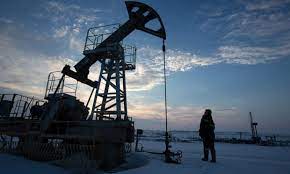The West's greatest economies on Friday consented to force a cost cap on Russian oil trying to diminish Moscow's capacity to support its conflict in Ukraine without further stirring up worldwide expansion.
Finance priests from the G7 gathering of nations — the United States, Japan, Canada, Germany, France, Italy and the United Kingdom — said they would boycott the arrangement of "administrations which empower sea transportation of Russian-beginning raw petroleum and oil based goods universally" over the cost cap. That could hinder protection cover or money for oil shipments.
The greatest cost would be set by "a wide alliance" of nations, they said in a joint explanation. It would produce results close by the European Union's next clump of approvals, which remember a boycott for seaborne imports of Russian oil beginning in December.
Russia had proactively taken steps to fight back by forbidding oil commodities to nations that carry out a cost cap.
"We will basically not supply oil and oil based commodities to such organizations or states that force limitations, as we won't work non-seriously," Deputy Prime Minister Alexander Novak told journalists Thursday, as per state news office TASS.
The Biden organization has been pushing for legislatures to present a cost cap for a really long time. The West has proactively endorsed numerous Russian energy sends out, however Moscow has kept on procuring billions of dollars a month by redirecting oil to China and Asia.
"The cost cap is explicitly intended to diminish Russian incomes and Russia's capacity to subsidize its conflict of animosity while restricting the effect of Russia ́s battle on worldwide energy costs, especially for low and center pay nations," the G7 finance priests said.
In any case, the action actually needs work and will be very complicated to make due. How, when and by how much the cost of Russian oil could be covered is not yet clear. It would likewise require more extensive global help to be viable.
"[We] ask all nations that actually look to import Russian oil and oil based commodities to focus on doing so just at costs at or beneath the cost cap," the money priests said.
Starting from the start of July, oil costs have fallen generally 18% in expectation that downturn will diminish request, yet they're still around 20% higher than they were one year prior.
"While we've seen energy costs ease in the United States, energy costs stay a worry for Americans and keep on being raised worldwide," US Treasury Secretary Janet Yellen said in a proclamation. "This cost cap is perhaps of the most amazing asset we need to battle expansion and safeguard laborers and organizations in the United States and universally from future cost spikes brought about by worldwide disturbances."
Novak has called the recommendations to force limitations "totally silly" and said they could obliterate the worldwide oil market, TASS revealed.
"Such endeavors will just weaken the oil business, the oil market," he said.
Streams of raw petroleum and other oil items to the United States, United Kingdom, European Union, Japan and South Korea have dropped by almost 2.2 million barrels each day starting from the beginning of the conflict in Ukraine, as per the International Energy Agency.
In any case, 66% of this decline has been rerouted to different business sectors, helping cushion Moscow's money chests. Send out incomes in July were about $19 billion, the IEA said.
Russia's control of enormous areas of worldwide energy supplies stays a significant test a half year since its intrusion of Ukraine. This week, Russia briefly ended petroleum gas conveyances to the locale through an essential pipeline and slice off all provisions to a French utility, worsening issues that have sent European expansion to a record high of 9%.
Russian state energy monster Gazprom said that the slice in conveyances through the Nord Stream 1 pipeline was because of an arranged closure for a couple of days for upkeep work. Resuming on Saturday is assumed.


.png)

0 comments :
Post a Comment